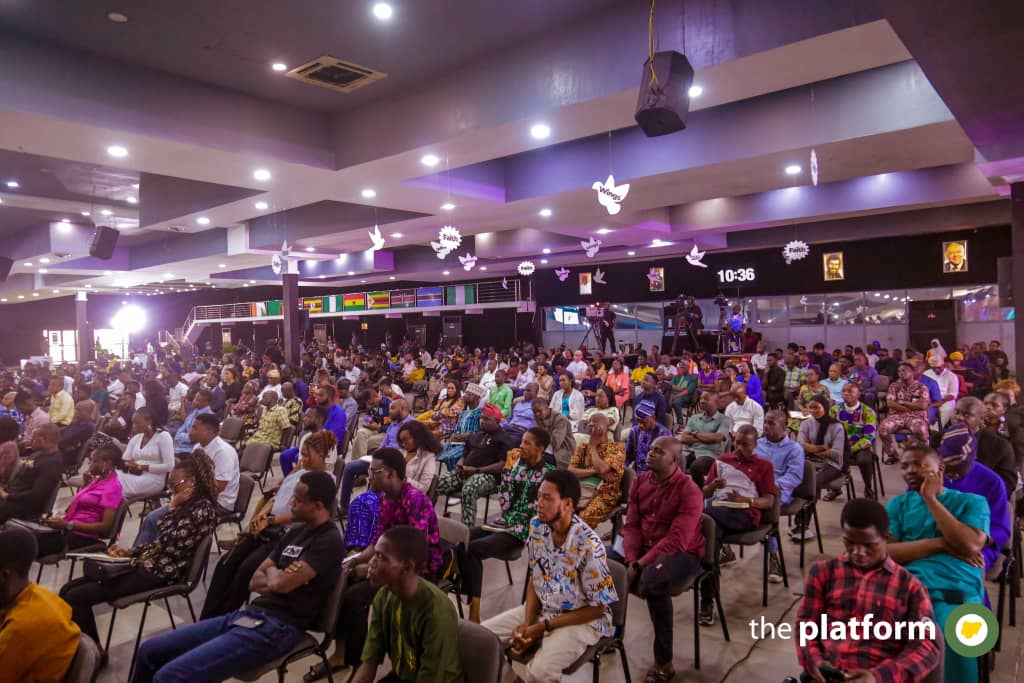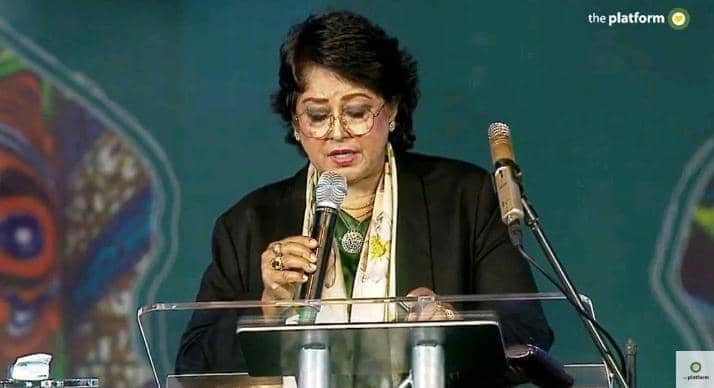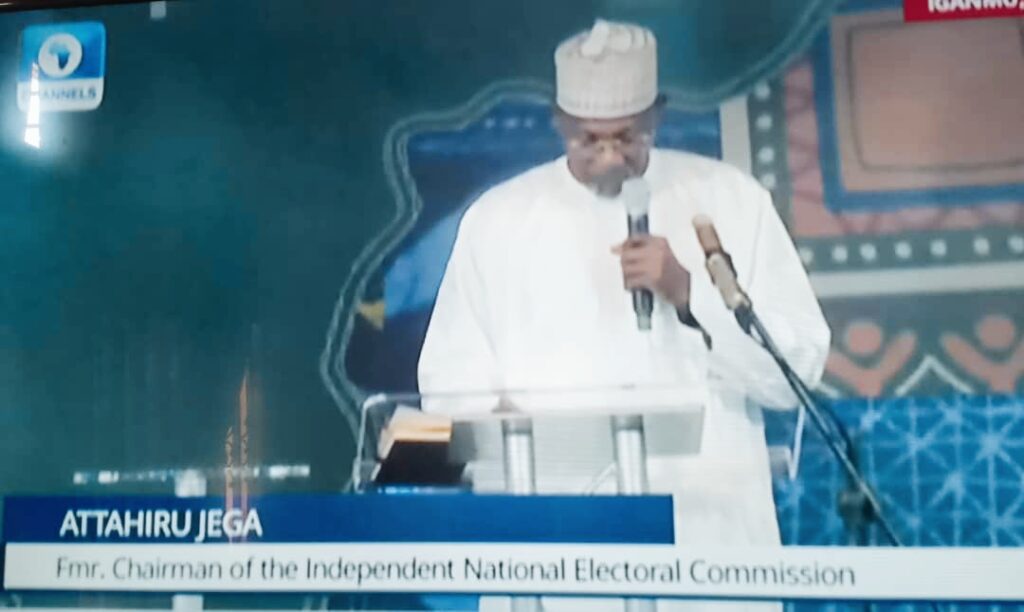Transformative Vision for Africa: Former Mauritian President Calls for Stronger Universities and Gender Equality
Democracy in Peril . . . as Jega warns against authoritarian slide.
By Oluwaseyi Elizabeth Jimoh
In a compelling address at a recent discourse hosted by The Platform in Lagos, Nigeria, Professor Ameenah Gurib-Fakim, the first female President of Mauritius, issued a clarion call for African leaders to adopt a transformative vision for the continent. This vision, she emphasized, must be built on the foundations of quality education, robust institutions, inclusive innovation, and strategic collaboration to unlock Africa’s full potential.
The Demographic Imperative
Citing the World Economic Forum, Gurib-Fakim highlighted that by 2034, Africa will be home to the largest population of working-age adults globally. This demographic edge, she noted, could fuel a powerful labor-driven economy. However, without robust educational and institutional systems, this potential may turn into a significant challenge. With 60% of the population under the age of 24, the stakes are high.

Education: The Core of African Renewal
As an academic herself, Gurib-Fakim stressed that education must be lifelong, accessible, and relevant. She urged African universities to evolve beyond mere knowledge dissemination and become engines of research, discovery, and societal transformation. This, she emphasized, requires a focus on both applied and fundamental research. “We must educate from the cradle to the grave,” she said, highlighting the importance of training graduates to contribute meaningfully to society. The integration of arts, humanities, and social sciences is also crucial, she argued, as these disciplines provide essential context for technological solutions.
The Brain Drain Conundrum
Gurib-Fakim tackled the pressing issue of brain drain, where Africa’s brightest minds migrate to other parts of the world in search of opportunities. “We cannot continue to lose our best minds to brain drain,” she lamented, stressing that education is not an expense but the most critical investment societies can make. She called on African governments and institutions to create favorable conditions for talented professionals to thrive at home.
Gender Equity and Inclusive Talent Development
The former president also addressed the persistent issue of gender inequality in higher education. Despite the fact that the world’s first university was founded by an African Muslim woman, Fatima al-Fihri in Tunisia, women remain underrepresented in academia today. Gurib-Fakim urged universities to provide inclusive, diverse, and safe spaces that support all students, regardless of background or gender. “Equality of opportunities must be our guiding mantra,” she emphasized.

A Call to Action for Democracy
In a related discussion, Professor Attahiru Jega, former Chairman of the Independent National Electoral Commission (INEC), sounded a warning about the fragility of democracy in Nigeria. Speaking on the same platform, Jega urged Nigerians to remain vigilant against any signs of a return to authoritarian rule. He expressed concern that despite 26 years of civilian governance, the country’s democratic consolidation has stalled, with power struggles and a lack of responsiveness to the needs of the electorate still prevalent.
Strengthening Democratic Institutions
Jega emphasized the importance of recruiting credible individuals into politics and called for continuous training of true democrats. “No nation can build a sustainable democracy without democrats,” he warned. He outlined steps necessary to strengthen democratic institutions, suggesting that resilient systems and strong institutions are key to promoting good governance and essential to checking authoritarian tendencies.
Collaboration and Pan-African Integration
Gurib-Fakim underscored the need for strategic collaboration among African universities and across borders. She praised the African Continental Free Trade Area (AfCFTA) as a vital step toward economic integration and stressed that collaboration is no longer optional but essential in the 21st century. The former president commended Nigeria’s academic legacy, citing institutions like the University of Ibadan and Obafemi Awolowo University, but emphasized that universities must do more to educate, generate knowledge, innovate, and invest in people.

In conclusion, both leaders emphasized the importance of investing in education and democratic institutions to build a brighter future for Africa. Professor Gurib-Fakim reiterated that education is the path out of poverty and the gateway to economic development, while Professor Jega stressed that democracy requires constant nurturing to thrive. Together, their messages underscore the need for a multifaceted approach to Africa’s development, one that prioritizes education, good governance, and collaboration. By working together and investing in these critical areas, Africa can unlock its full potential and forge a brighter future for generations to come.





Comments